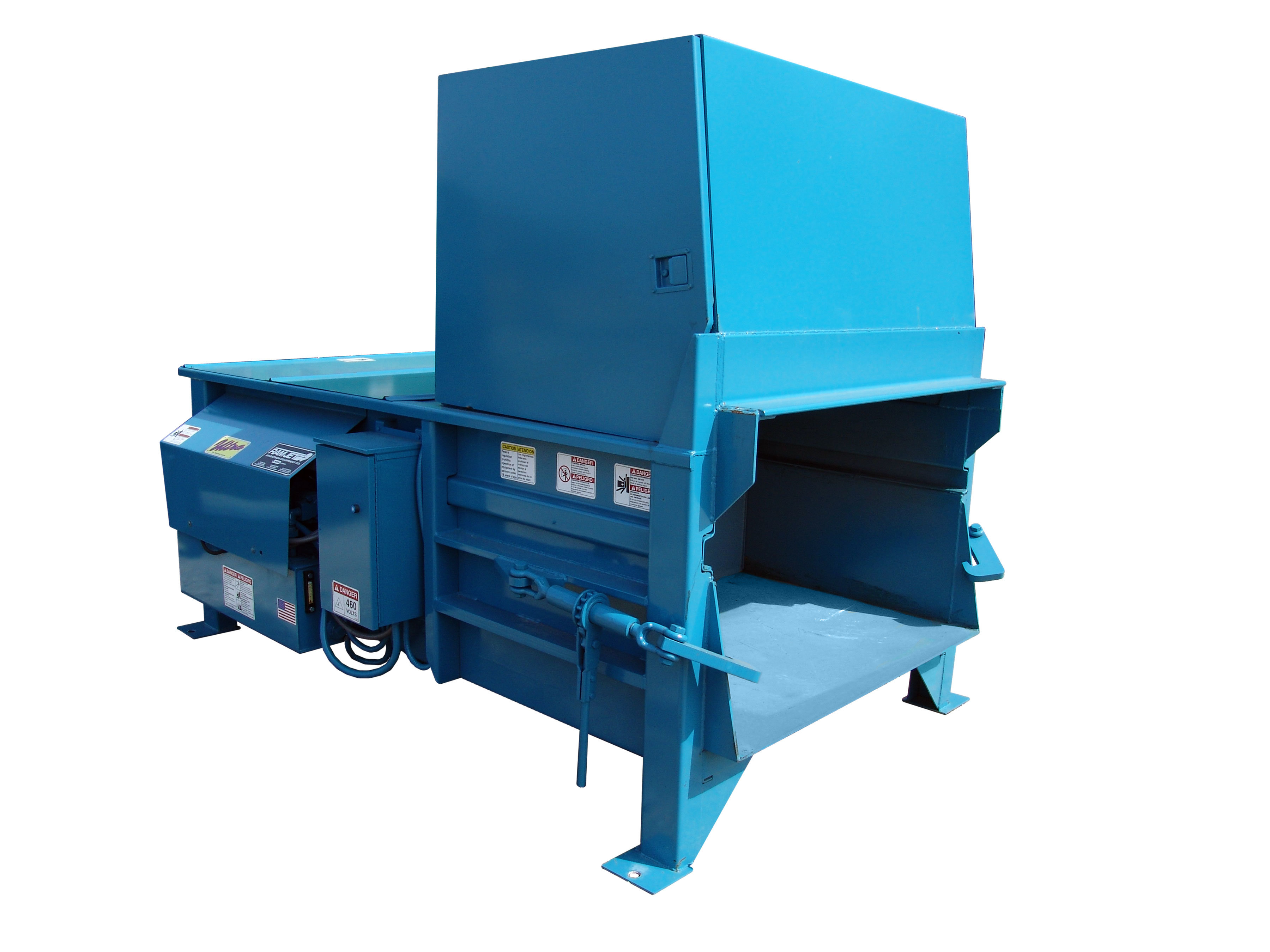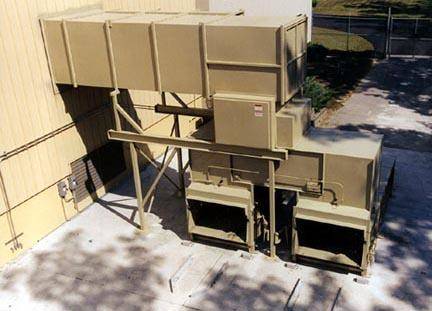How Commercial waste compactor equipment enhances safety and cleanliness
Wiki Article
The Duty of Waste Equipment in Promoting Sustainable Garbage Disposal Practices
Waste Equipment offers an essential duty beforehand sustainable garbage disposal practices. It includes a variety of tools developed to enhance the efficiency of waste segregation, collection, and handling. By utilizing Equipment such as compactors, shredders, and reusing containers, neighborhoods can greatly minimize their reliance on landfills. The influence of these tools expands beyond capability. Recognizing their broader effects reveals understandings into just how they shape ecological obligation and community engagement. What exists in advance in this advancing landscape?Recognizing Waste Equipment and Its Importance
Waste Equipment plays a vital role in effective waste management systems. It includes a series of devices and machinery made to manage, procedure, and take care of waste materials effectively. Understanding waste Equipment is very important for communities, companies, and organizations aiming to apply lasting waste disposal practices - Commercial garbage compaction equipment. Correctly functioning waste Equipment not just improves the collection and transport of waste yet also minimizes ecological impact by ensuring that waste is taken care of sensiblyThe significance of waste Equipment includes improving recycling initiatives, lowering garbage dump use, and advertising resource recuperation. Equipment such as compactors, balers, and shredders assist in the handling of waste, making it less complicated to separate recyclable materials from basic refuse. In addition, advancements in waste innovation add to the development of even more eco-friendly remedies, thus strengthening the dedication to sustainability. Generally, waste Equipment functions as a keystone for effective waste administration, cultivating a cleaner and healthier atmosphere for future generations.
Sorts Of Waste Equipment for Effective Waste Monitoring
Efficient waste monitoring depends on different sorts of Equipment created to resolve specific disposal demands. Amongst these, compactors play an essential duty by reducing the volume of waste, making transportation more reliable. Shredders are vital for breaking down large items, assisting in simpler handling and disposal. In addition, balers compress recyclable materials right into convenient bundles, optimizing storage space and transport.Containers and bins are basic for collecting waste at the source, guaranteeing proper partition and decreasing contamination. For hazardous materials, specialized Equipment, such as drum crushers and leak-proof containers, is necessary to guarantee safety and compliance with guidelines.
Transportation lorries furnished with hydraulic systems boost the performance of waste collection and disposal processes. Each kind of waste Equipment contributes to a streamlined waste monitoring system, advertising sustainability and decreasing ecological impact via effective disposal methods.
The Duty of Recycling Containers in Sustainable Practices
Reusing containers play a vital function in advertising sustainable techniques by facilitating reliable waste splitting up. By providing marked containers for recyclable products, they urge individuals to take on environment-friendly actions. This easy execution greatly adds to decreasing landfill waste and boosting reusing prices.Reliable Waste Splitting Up
Appropriate waste splitting up plays a crucial role in promoting lasting practices, and reusing containers work as a substantial device in this process. By clearly differentiating between recyclables, compostables, and basic waste, these bins help with efficient sorting, decreasing contamination and optimizing recycling effectiveness. Their calculated placement in personal and public rooms urges individuals to take part in responsible waste disposal. In addition, making use of color-coded bins assists to simplify the separation process, making it user-friendly for users. This organizational approach not only enhances reusing rates however also raises recognition about the significance of waste monitoring. Essentially, recycling containers are basic parts that support efficient waste separation, ultimately adding to a much more sustainable environment and lowering the total pressure on landfills.Urging Eco-Friendly Behavior
Although people may be inclined to neglect their influence on the environment, the existence of recycling bins substantially affects environment-friendly actions. These bins serve as aesthetic reminders, encouraging people to separate recyclables from general waste. Their calculated placement in public spaces advertises availability, making it much easier for people to embrace sustainable methods. Research studies show that when recycling bins are available, reusing prices increase considerably, showing a straight connection in between facilities and behavior. Furthermore, vibrant signage on these bins educates customers concerning what materials can be reused, reducing contamination prices. By fostering a culture of recycling, these containers not only facilitate appropriate waste management however likewise inspire a collective duty toward environmental stewardship, eventually contributing to a more lasting future.Composting Systems: Transforming Waste Into Resources
Composting systems act as an important device in changing natural waste into beneficial resources, using numerous environmental advantages. Various sorts of composting Equipment accommodate various requirements, making the process accessible to both individuals and areas. Understanding the composting process is essential for optimizing its efficiency and advertising sustainable waste management techniques.Advantages of Composting Systems
Numerous neighborhoods are increasingly acknowledging the numerous benefits of composting systems, which change organic waste right into valuable sources. These systems successfully minimize garbage dump waste, therefore reducing greenhouse gas discharges and conserving all-natural sources. By converting food scraps, lawn waste, and various other natural products into nutrient-rich garden compost, they improve dirt health and fertility, advertising lasting agriculture techniques. Additionally, composting assists to keep moisture in the dirt, decreasing the demand for chemical fertilizers and watering. It fosters biodiversity by providing an environment for advantageous microbes and insects. Additionally, composting enlightens individuals concerning environmental stewardship, encouraging a culture of sustainability. In general, composting systems play a crucial function in creating a round economic situation, where waste is reduced, and resources are reused.Sorts Of Composting Equipment
A variety of composting Equipment is readily available to facilitate the reliable processing of natural waste right into useful garden compost. These systems range from straightforward yard compost containers to advanced business composters. For home use, tumblers and fixed containers are popular, enabling for manageable oygenation and mixing. Aerated fixed stacks use blowers to boost airflow, considerably quickening decay. Massive procedures might use in-vessel composters, which manage temperature level and moisture for ideal composting conditions. Worm composters, or vermicomposting systems, harness the all-natural digestive system processes of worms to break down raw material. Additionally, chippers and shredders aid prepare materials by minimizing size, promoting faster break down. Each sort of Equipment offers particular needs, making it possible for varied composting practices that add to sustainable waste management.Composting Refine Explained
The composting procedure changes organic waste into nutrient-rich resources via a series of chemical and organic responses. Microbes such as bacteria and fungis break down natural products, consisting of food scraps and lawn waste. This decay generates warm, promoting additional microbial task and increasing the break down process. As the compost grows, the temperature level decreases, allowing beneficial microorganisms to thrive. The presence of oxygen is important, promoting aerobic conditions that boost microbial efficiency. Throughout this process, carbon-to-nitrogen proportions need to be kept to enhance decomposition. Completion result is humus, a dark, brittle substance rich in nutrients, which can be used to enhance soil, assistance plant growth, and contribute to sustainable agricultural techniques.Innovative Technologies in Waste Collection and Disposal
As cities come to grips with raising waste quantities and environmental concerns, innovative innovations in waste collection and disposal become crucial services. Smart waste bins furnished with sensing units track fill levels, enhancing collection paths and visit this site lowering fuel consumption. These bins can also connect with waste monitoring systems, lessening and facilitating prompt pick-ups overflow problems. On top of that, autonomous vehicles, including drones and robotic systems, are being released to improve operational effectiveness in waste collection.Improvements in arranging modern technologies, such as expert system and equipment learning, allow much more reliable reusing procedures by swiftly recognizing and separating products. Waste-to-energy technologies convert natural waste right into eco-friendly energy, lowering garbage dump reliance and contributing to power sustainability. These advancements not only simplify waste administration practices yet also advertise a round economy, consequently cultivating a lasting technique to throw away disposal. Eventually, the integration of these innovations plays an essential function in resolving urban waste challenges and improving environmental stewardship.
Area Interaction Through Waste Equipment
While reliable waste management relies heavily on innovative innovations, neighborhood involvement via waste Equipment plays a crucial role in fostering lasting practices (Commercial garbage compaction equipment). Waste Equipment, such as reusing bins and composting stations, serves not only as practical tools but additionally as catalysts for area awareness and participation. By putting these resources in available places, towns encourage individuals to take an active duty in waste decrease and reusing effortsEducational projects coming with waste Equipment installments can further enhance area participation, leading citizens on proper disposal techniques and the benefits of lasting techniques. Furthermore, neighborhood occasions that make use of waste Equipment, such as clean-up drives and recycling obstacles, inspire collective action and construct a sense of responsibility amongst neighborhood participants.

The Future of Waste Monitoring and Lasting Solutions
Advancements in modern technology and changes in social mindsets are shaping the future of waste administration and lasting solutions. Smart waste management systems, using IoT tools, are enabling real-time tracking of waste levels, maximizing collection paths, and lowering carbon footprints. These improvements not just enhance efficiency however likewise promote recycling and composting campaigns by offering data-driven understandings.
Additionally, the surge of circular economy methods encourages companies to reassess item style, concentrating on reusability and recyclability. This change promotes a culture of sustainability, where customers are progressively demanding environment-friendly products.
Moreover, area participation in waste monitoring is becoming increasingly vital, with curricula empowering individuals to take responsibility for their waste. As federal governments worldwide execute more stringent guidelines on garbage disposal, companies and communities are motivated to take on lasting methods. Together, these components lead the way for a future where waste is lessened, and resources are saved, ensuring a much healthier planet.
Often Asked Inquiries

Just How Can Services Benefit Monetarily From Purchasing Waste Equipment?
Purchasing waste Equipment can cause substantial monetary advantages for companies. By improving efficiency, minimizing disposal prices, and improving reusing abilities, business can decrease operational costs and potentially produce revenue with recouped products.What Regulations Govern using Waste Equipment in Various Areas?
Various policies regulate waste Equipment use, differing by region. These include environmental criteria, safety and security protocols, and operational standards, focused on making certain conformity, advertising public health, and minimizing ecological influence related to waste administration methods.Exactly how Do I Pick the Right Waste Equipment for My Requirements?
Selecting the proper waste Equipment demands assessing details waste kinds, quantity, and disposal approaches. Looking into available choices, talking to professionals, and thinking about governing conformity will certainly assist in making an informed decision tailored to private demands.What Are the Ecological Impacts of Ineffective Waste Equipment?
Ineffective waste Equipment can bring about raised emissions, higher power intake, and better landfill overflow. It commonly leads to inappropriate waste segregation, worsening pollution and adversely impacting ecological communities, which eventually impedes lasting waste management initiatives.read the article
How Can Waste Equipment Be Kept for Ideal Performance?
Waste Equipment can be maintained for peak efficiency try this out through regular inspections, timely repair services, appropriate cleansing, and adherence to manufacturer guidelines. This ensures performance, expands Equipment lifespan, and decreases ecological effect throughout waste administration processes.Waste Equipment plays a necessary duty in effective waste monitoring systems. Recognizing waste Equipment is vital for companies, communities, and services aiming to implement sustainable waste disposal techniques. While efficient waste monitoring relies greatly on innovative modern technologies, neighborhood engagement through waste Equipment plays a vital duty in fostering sustainable techniques. Area participation in waste monitoring is coming to be significantly crucial, with educational programs empowering individuals to take responsibility for their waste. Picking the appropriate waste Equipment necessitates assessing details waste types, volume, and disposal methods.
Report this wiki page